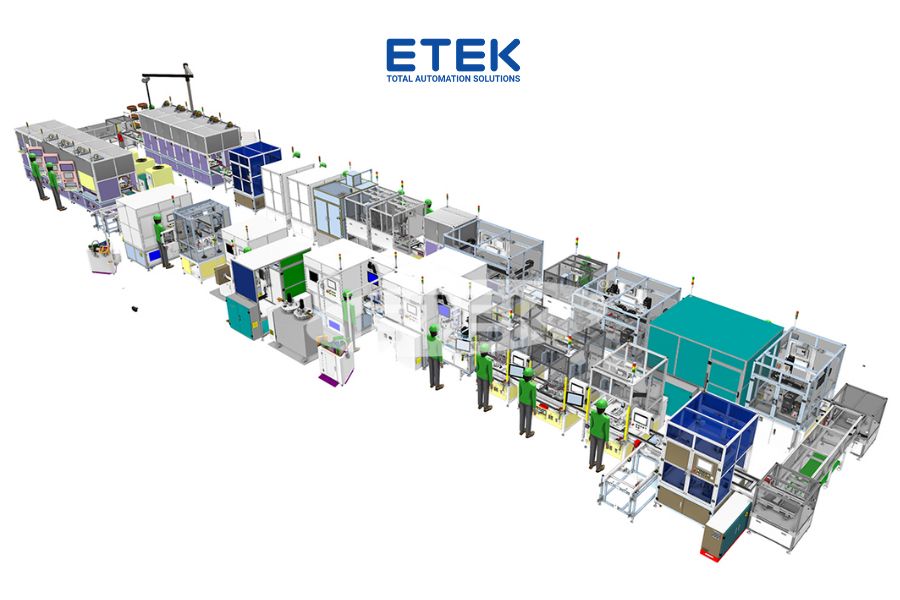Automation in the electrical and electronics industry is essential in improving production efficiency, reducing labor costs, and ensuring safety in manufacturing processes. From assembling printed circuit boards (PCBs) to product testing, various stages can be automated with the help of robots and modern technologies. Applying automation solutions and artificial intelligence (AI) to the production process optimizes time and enhances accuracy and product quality. Electronics manufacturers, from small component suppliers to original equipment manufacturers (OEMs), are increasingly implementing automation to boost productivity and ensure product quality.
Automation solutions are applied in stages such as electronic component assembly, soldering, testing, and product packaging in the electrical and electronics industry. ETEK has nearly 20 years of experience and specializes in building automation solutions for the electrical and electronics industry. The automation systems designed and manufactured by ETEK combine robotics, vision systems, and sensors to handle complex challenges such as:
Electronics companies apply automation in high-demand areas such as chip manufacturing, smartphone assembly, computers, televisions, and other consumer devices. Automation solutions speed up production and minimize errors, thereby improving the reliability and lifespan of electronic products.
The adoption of automation brings significant benefits. First, it reduces product defects during manufacturing, lowering the number of faulty or substandard products. Automation also boosts productivity by allowing production lines to operate continuously without interruptions caused by human factors such as breaks or errors due to fatigue.
Additionally, automation improves working conditions for employees. Automated systems can handle hazardous, repetitive, or highly focused tasks, minimizing the risk of injury to workers. This not only protects workers’ health but also enhances overall work efficiency.
In the future, automation in the electrical and electronics industry will continue to develop and become more innovative with the support of artificial intelligence (AI) and the Internet of Things (IoT). Automated systems will be able to learn and self-adjust to optimize production processes while continuously updating and improving product quality. This will create intense competition among manufacturers and bring more value to consumers.
Automation in the electrical and electronics industry is becoming an essential factor, helping companies increase efficiency, reduce costs, and improve product quality in an increasingly competitive market.
Years
Talented Employees
The fastest company in Vietnam
Location Worldwide

Fill out the form or give us a call for Consultation
Email us: info@etek.com.vn
Call us: (+84) 965 800 166